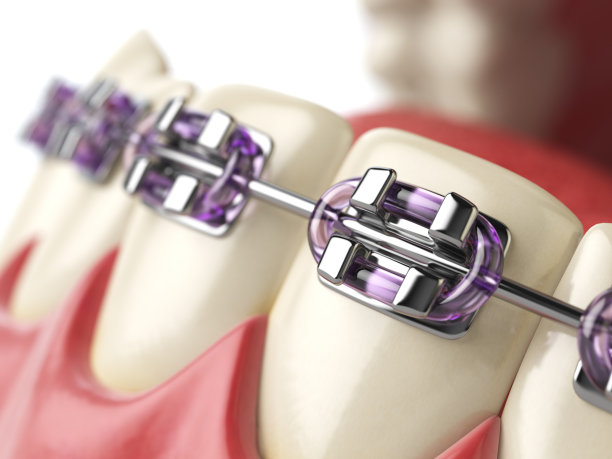Summary: Periodontal disease, an often overlooked oral health issue, significantly affects overall health beyond the gums. This article delves into the multifaceted impacts of periodontal disease on systemic health, highlighting the burden it places on conditions like cardiovascular diseases and diabetes. Furthermore, it provides a focused discussion on preventive measures and effective treatment strategies that can help mitigate these risks. By understanding the connections between oral health and overall well-being, individuals and healthcare providers can work towards promoting better health outcomes through increased awareness and proactive dental care.
1. Connection Between Periodontal Disease and Systemic Health

Research reveals a compelling link between periodontal disease and various systemic health issues, making oral health a critical component of overall well-being. Periodontal disease, characterized by inflammation and infection of the supporting structures of the teeth, can contribute to chronic diseases such as diabetes and cardiovascular conditions. This connection often stems from inflammatory mediators released into the bloodstream during periods of periodontal inflammation.
Moreover, individuals with diabetes may find that their periodontal disease exacerbates their blood sugar levels, creating a vicious cycle that can lead to further complications. Thus, managing periodontal health becomes an essential aspect of diabetes care, emphasizing the need for an integrated approach to treatment.
Cardiovascular health is equally affected, with studies indicating that individuals with periodontal disease may have a higher risk of heart disease. The inflammatory responses in the gums can lead to vascular inflammation and atherosclerosis, underscoring the importance of maintaining oral health as part of a comprehensive cardiovascular health strategy.
2. Early Detection and Preventive Strategies
Prevention is always preferable to treatment, especially in the context of periodontal disease. Early detection through regular dental examinations is paramount for identifying the initial stages of gum disease. During these visits, dental professionals can perform thorough cleanings and educate patients on proper oral hygiene practices, significantly reducing the risk of developing advanced periodontal issues.
Moreover, adopting a proactive approach to oral care at home is crucial. This includes brushing twice daily and flossing regularly, as these practices help remove plaque and prevent its buildup. Educational programs aimed at promoting oral hygiene practices can empower patients to take charge of their dental health, thereby mitigating the effects of periodontal disease.
Additionally, lifestyle factors such as smoking cessation and a balanced diet rich in vitamins can further bolster the prevention of periodontal disease. Incorporating these changes not only enhances oral health but also contributes to better overall health outcomes.
3. Treatment Options for Periodontal Disease
Once periodontal disease is diagnosed, a range of treatment options are available depending on its severity. For mild cases, non-surgical treatments, including scaling and root planing, are effective. This deep cleaning procedure removes plaque and tartar from below the gum line, helping to restore gum health.
For more advanced cases, surgical interventions, such as flap surgery or bone grafts, may be necessary to restore lost support structures. These procedures can be effective in reducing pockets of infection and promoting healing, ultimately improving both oral and systemic health.
Additionally, the incorporation of antimicrobial agents in treatment plans can help manage bacterial infections associated with periodontal disease. These agents can be applied topically or prescribed in systemic forms to aid in recovery and maintain periodontal health.
4. The Importance of Ongoing Maintenance and Care
Maintaining oral health after treatment for periodontal disease is essential for long-term success. Regular follow-ups with dental professionals can help monitor gum health and the effectiveness of the treatment provided. Structured maintenance programs should be put in place, encouraging patients to return for cleanings and check-ups every three to six months.
Education plays a vital role in ongoing care. Patients need to be informed about the signs of periodontal disease recurrence and how to manage their oral health proactively. This includes understanding the significance of consistent dental hygiene and adhering to recommended dental visits.
Support from dental professionals can enhance patients commitment to their oral care routines. By fostering a collaborative approach between patients and dental practitioners, it becomes possible to sustain improved oral health and its associated benefits for overall health.
Summary:
In conclusion, understanding the impact of periodontal disease on overall health highlights the intertwined nature of oral and systemic health. Emphasizing prevention and timely treatment is critical in managing this common condition and averting serious health risks. As dental practices continue to evolve, ongoing education and patient engagement remain vital in achieving comprehensive health benefits through effective oral care.
This article is compiled by Vickong Dental and the content is for reference only
Vickong Dental
Vickong Dental is a large medical group established in Hong Kong in 2008 by professors from well-known medical universities in Guangdong and Hong Kong, as well as medical doctors from key national '985' universities (including Master's supervisors and senior professors). The chain of branches brings together expert dentists with PhDs and Master's degrees from Hong Kong and Mainland China, committed to providing high-quality dental treatment.
"Vickong Dental Practices the University Motto of 'Healing and Serving Society,' with a Stable Operation for Sixteen Years. It Has Been honored with Hong Kong Enterprise Leaders's Choice,' and is a Global Trusted Implant Center for the Nobel Implant System. Recommended by Hong Kong Metro Broadcast and Guangdong Television, it Serves Customers from Over Thirty Countries and Regions, Gaining the Trust and Favor of Citizens from the Guangdong-Hong Kong-Macau Greater Bay Area and Surrounding Cities.

Thousands of customers' unanimous praise
The most recognized and highly recommended dental service by customers in the Guangdong-Hong Kong-Macau Greater Bay Area
We Ensure You Receive Detailed Care and Attention Here
Hong Kong standards, Shenzhen prices, Your Trusted English-speaking dentists

Vickong Dental Medical-Grade Instrument Disinfection Process
Vickong Dental Medical-Grade Instrument Disinfection Process

Vickong Dental Chain: A Warm and Comfortable Environment for Treatment






Appointment Hours

Q&A
Why choose Vickong Dental?
Vickong Dental practices the university motto 「Medicine to Benefit Society」, with each branch bringing together highly qualified dentists with doctoral and master’s degrees from Hong Kong and the Mainland, and has maintained seventeen years of steady operation。Recipient of 「2024 Hong Kong Enterprise Leaders Brand」, 「2025 Hong Kong Enterprise Leaders Brand」, a Nobel Biocare Global Trusted Implant Center, and a brand recommended by Metro Radio Hong Kong and Guangdong TV。
To date, we have served customers from more than thirty countries and regions,earning exceptionally high word-of-mouth recognition and trusted recommendations from residents across the Guangdong-Hong Kong-Macao Greater Bay Area and surrounding cities
We have eight major branches in Zhuhai、Shenzhen,and a consultation and service assurance center in Hong Kong,so you can book a free consultation at any time for any questions,which is very reassuring.
If I do not accept the quotation after the CT scan, will I be charged??
No! As long as the actual treatment has not started, you will not be charged any fees.
Will there be any additional charges during the treatment process?
No, there won’t be any additional charges. Before treatment begins, we will clearly explain the treatment plan and its corresponding fees. Only after the patient agrees and signs the consent form will we proceed with the dental service.
Can I pay in Hong Kong dollars?
Yes. Vickong Dental accepts payment in Hong Kong dollars. The amount will be converted based on the exchange rate of the day, and the applicable rate will be clearly communicated to you in advance.
Can I reschedule my appointment at any time?
Yes. Please contact us via **WeChat** or **WhatsApp** as early as possible, providing your original appointment time and details, along with your preferred new date and time slot for rescheduling.













